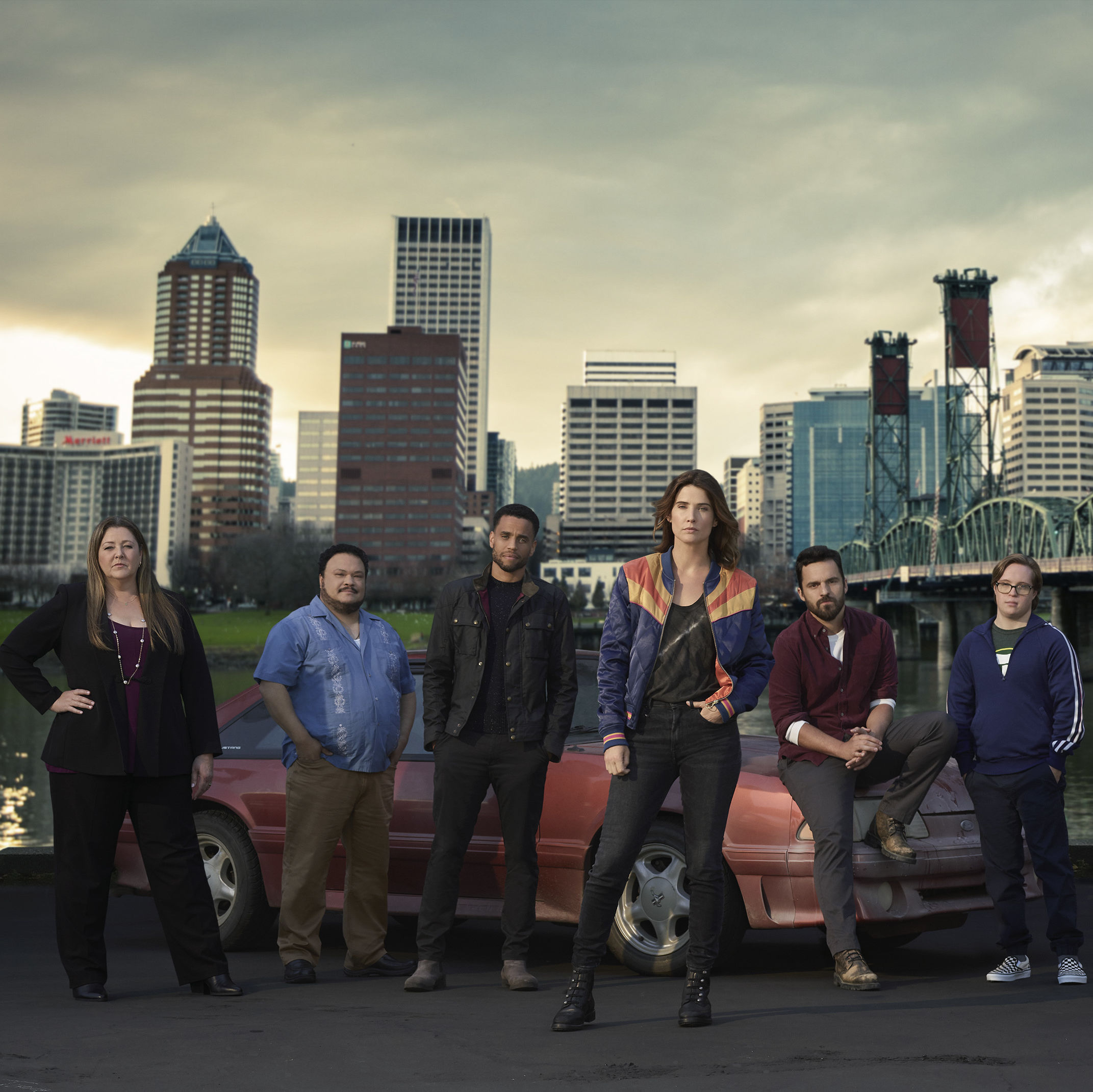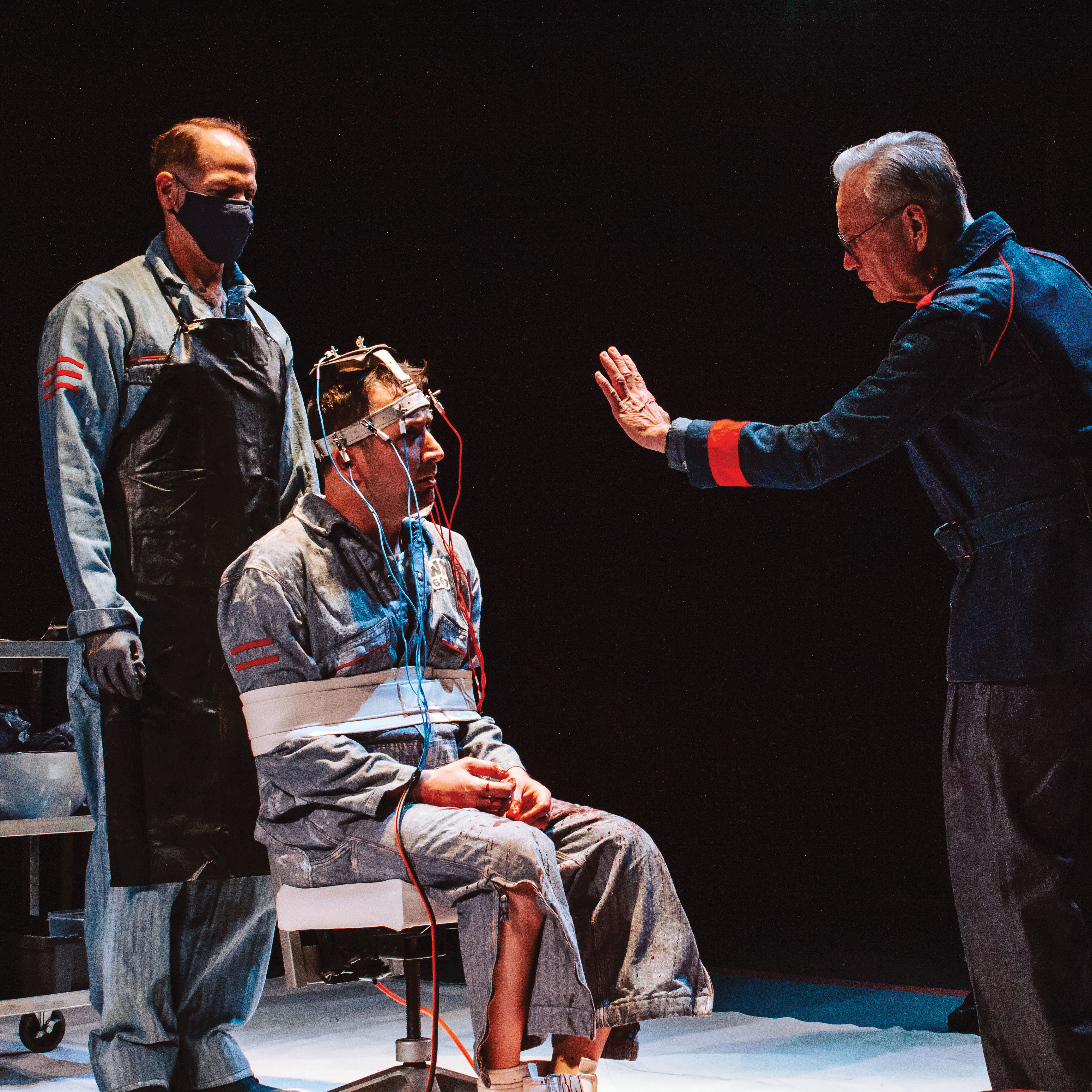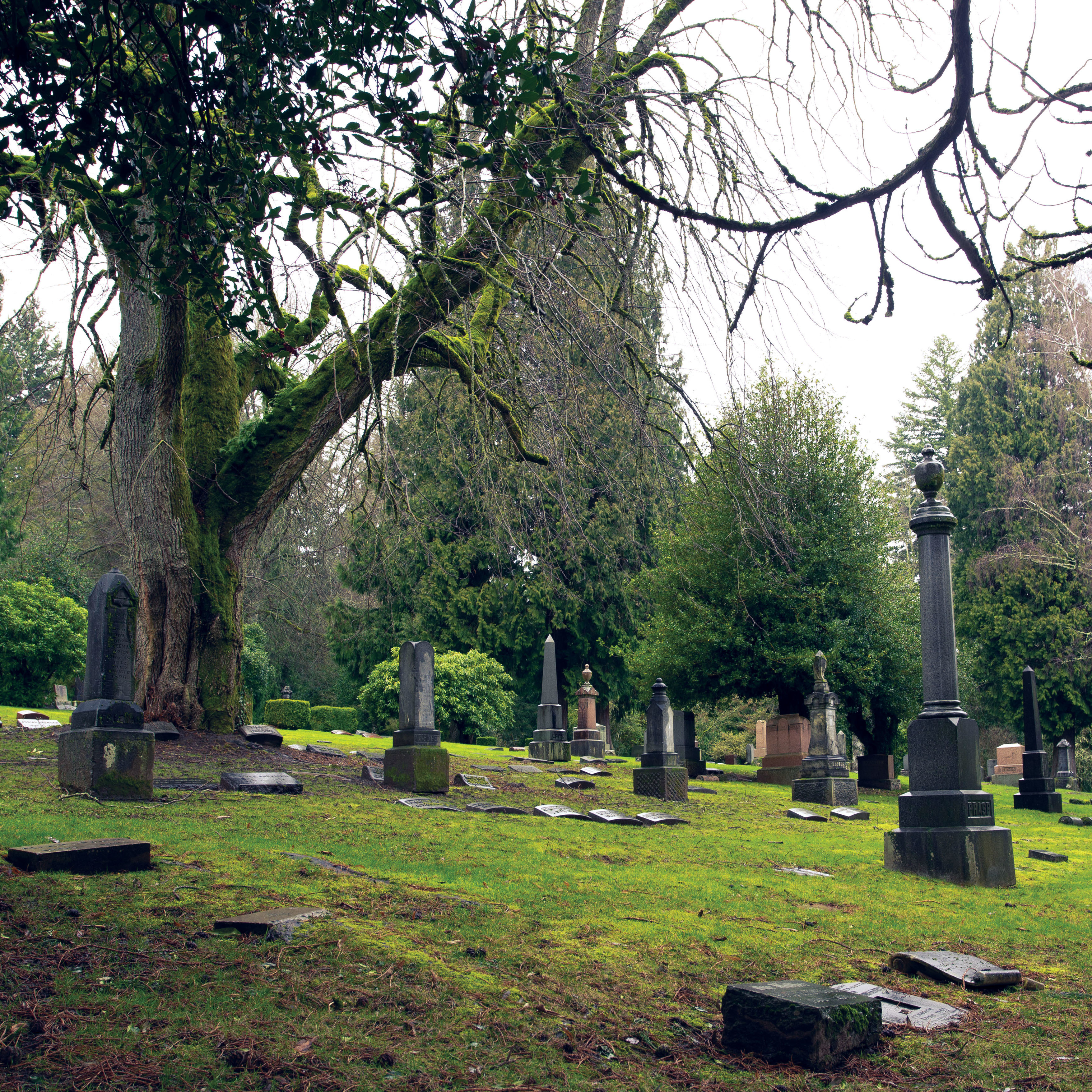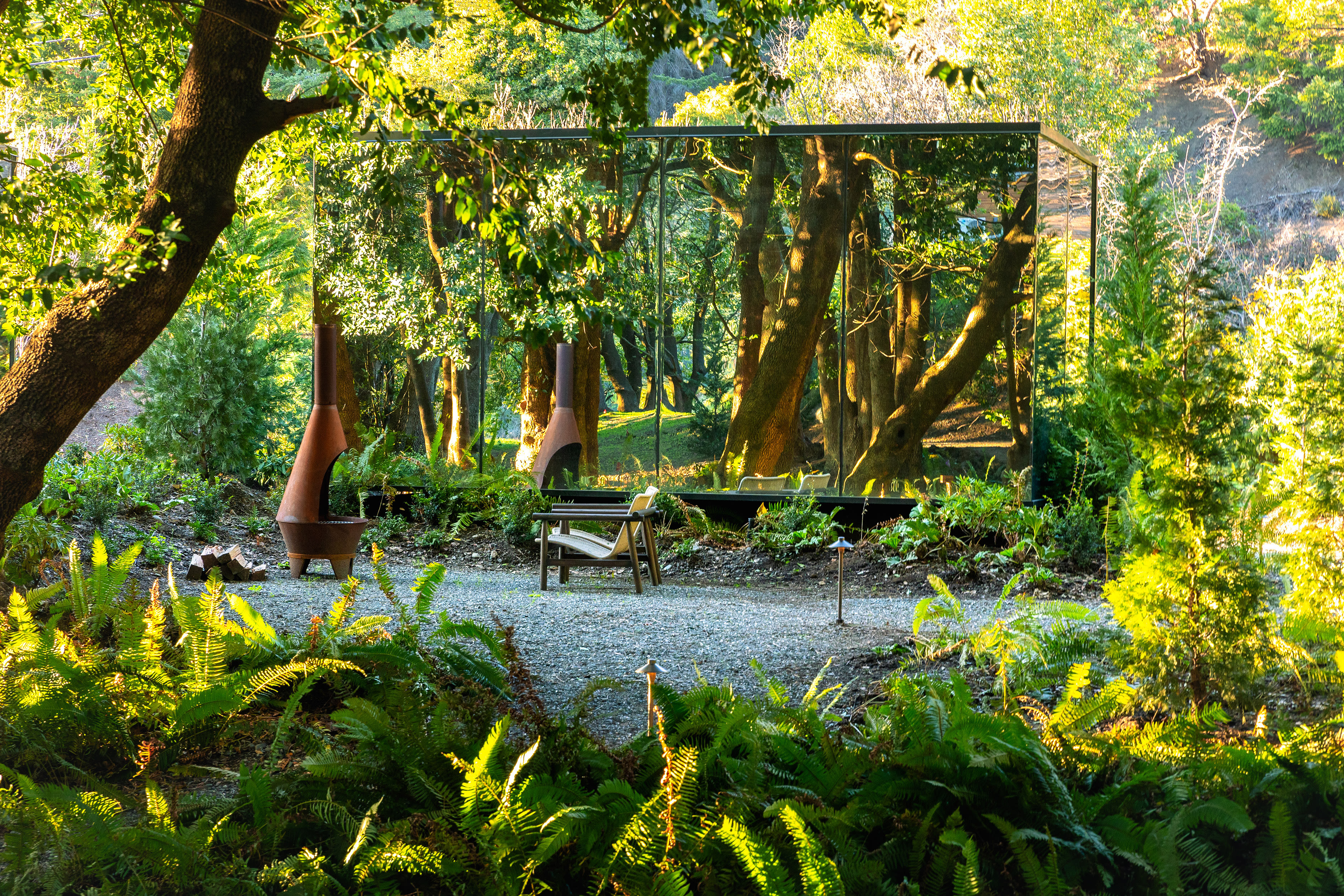Meet Gabriel Kahane, the Oregon Symphony’s New Creative Chair
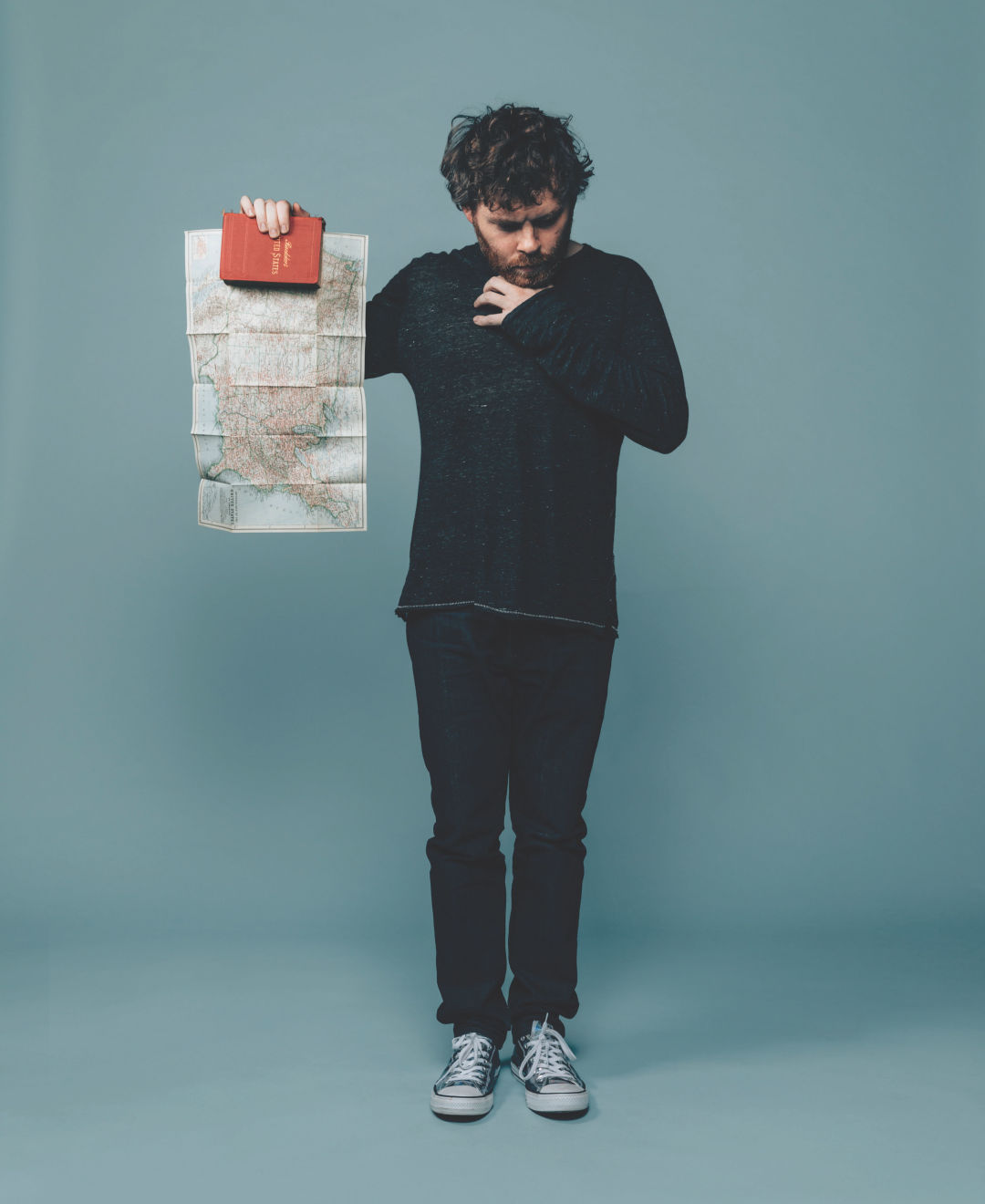
Image: Courtesy Gabriel Kahane
Five minutes into an interview at downtown’s Hotel Zags, Oregon Symphony creative chair Gabriel Kahane starts talking about the evils of neoliberalism.
It comes when the conversation turns to Book of Travelers, his 2018 album with an origin story plucked from a publicist’s fever dream. The day after the 2016 election, overwhelmed by the “toxic morass of the digital space,” Kahane boarded a train at Penn Station with hopes of piecing together a portrait of the nation unmediated by Twitter rage. He rode across America and back, chatting up strangers in dining cars, and repurposed his conversations into a tender 38-minute suite.
“I left the experience with equal doses of optimism and despair,” he says. “Despair because, when I reentered the digital space, it was as fractious and fractured as ever. But also optimism because—I’m loath to say something too rose-colored and misty-eyed—but I basically think that there are a lot of good people who have been shat on by deregulation and the gutting of the social safety net over the last 40 years. And there’s a long history, not just in this country but in Germany and Russia, where economic ruin leads to either aspirational authoritarian regimes or actual authoritarian regimes.”
He takes a breath. “I feel like I’ve put my cards on the table a little bit more than maybe I would’ve in my first five minutes of my first interview as an advocate for the Oregon Symphony,” he says. “But whatever.”
The symphony named Kahane—an LA-born, Brooklyn-based composer and singer-songwriter with twitchy charm that offsets his fierce intellect—its first-ever creative chair last August. The three-year position (with a possible extension) will see him shape programming, compose new works, and (hopefully) move the needle on the organization’s cool factor while commuting between New York and Portland.
“I want people of any age to go to the symphony and not feel like it’s cultural tourism,” he says. “As someone who grew up listening to my dad practice Mozart piano concertos five feet away from me, I’ve [still] very much had the experience of walking into a concert hall and feeling like, ‘What the fuck is going on here? I don’t belong here.’”
This month, starting with Pulitzer-winning violinist and Kanye West collaborator Caroline Shaw, Kahane will launch a series called Open Music, where “musician[s] open their brain[s] onto the stage through a concert of their own design.” The series will marry pop songs, classical compositions, and pieces from each artist’s own repertoire.
“I want to demonstrate that there’s work being made right now, by my colleagues and people I admire, that speaks to people’s lives in [2020],” Kahane says. “And I also want to build programs that walk people back through history to the point where they hear the Pastoral Symphony of Beethoven and they’re like, ‘Oh, that speaks to my life.’”
Kahane’s partnership with the symphony started in 2016, when the group commissioned him to write a piece on homelessness. At first, he was hesitant, saying it felt like “an ivory tower institution telling a story they have no business telling.” But after considering the audience he’d reach, and successfully bringing on the Maybelle Community Singers—a choir made up of Portlanders who’ve experienced poverty and homelessness—he agreed.
The resulting composition, emergency shelter intake form, premiered at the Schnitz in 2018. It’s a gutting, gonzo oratario about the banality of poverty, with a cheeky Greek chorus and a song about NIMBYism performed by Portland stalwart Holcombe Waller. The symphony loved it so much they essentially created Kahane’s position out of thin air. Even more exciting? A conservative audience member approached him after one performance to offer some tacit approval.
“He said, ‘I don’t understand the connection between the financial crisis and homelessness, but I loved the piece.’ And I thought, well, we got most of the way there.”
That’s the power of Kahane’s work: He has an obvious agenda, but it doesn’t feel punitive. His goal is dialogue, not discipline.
“There is no apolitical art,” he says. “There’s either art that reinforces the status quo or art that’s moving in one direction or another. I think that if something allows its audience to feel more deeply, to be more in touch with the existential muck of being human, that’s a mitzvah.”
